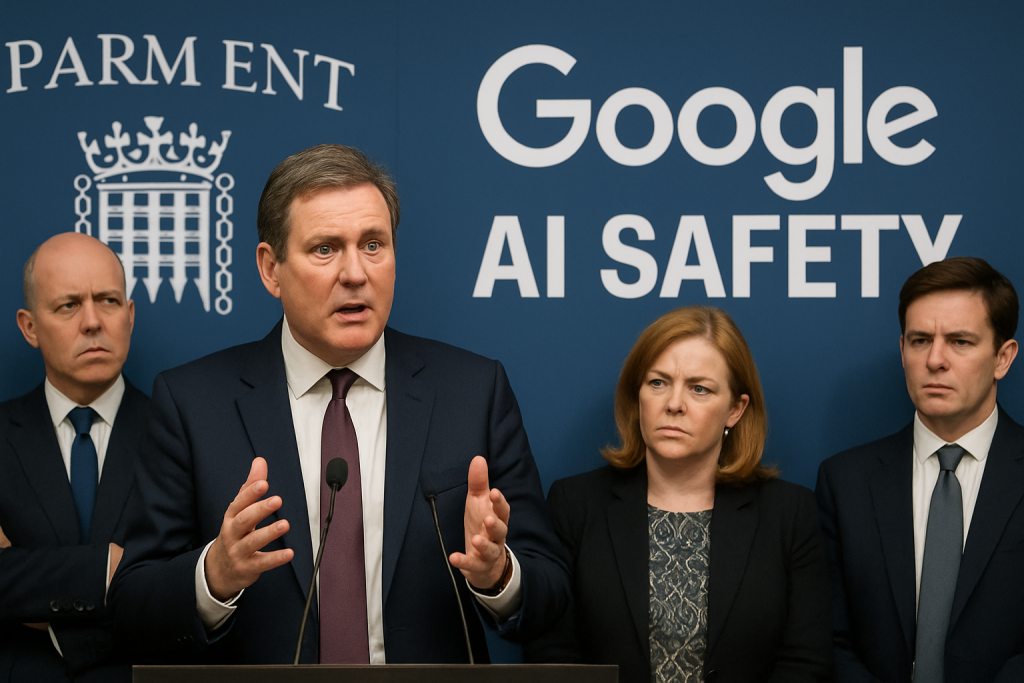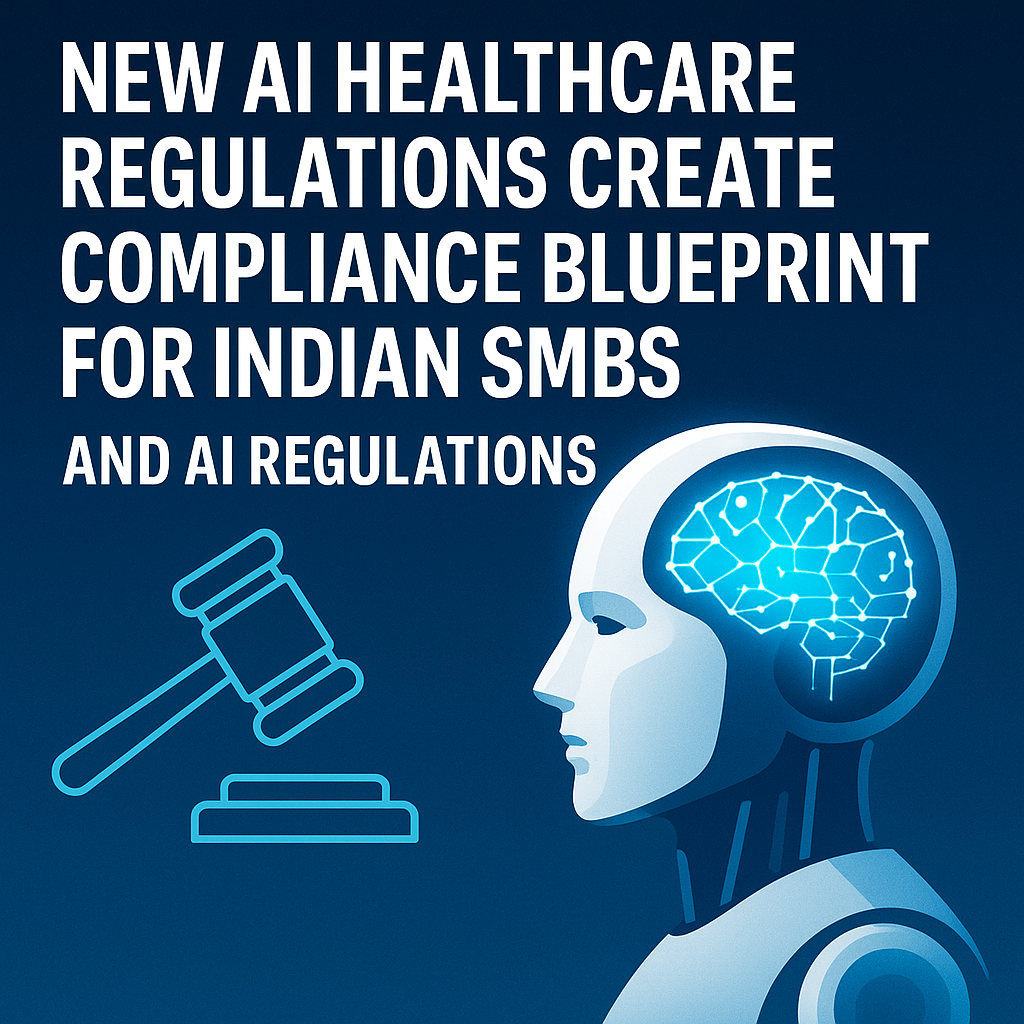Sixty U.K. parliamentarians have unleashed a scathing attack on Google DeepMind, accusing the tech giant of violating international AI safety commitments. The cross-party coalition claims Google’s March release of Gemini 2.5 Pro without proper safety documentation sets a dangerous precedent for the entire industry.
The bombshell allegation comes as TIME confirmed for the first time that Google failed to provide pre-deployment access to its advanced AI model to the U.K. AI Safety Institute. This breach directly contradicts the company’s pledges made during the 2024 AI Safety Summit in Seoul, Korea.
Why This Matters for Global Business
Google’s alleged safety violations expose critical gaps in AI governance that could reshape how tech companies operate worldwide. The controversy highlights growing tensions between rapid AI deployment and regulatory oversight, with potentially massive implications for business leaders navigating this evolving landscape.
The open letter, organized by activist group PauseAI U.K., features prominent signatories including digital rights campaigner Baroness Beeban Kidron and former Defence Secretary Des Browne. Their unified stance signals unprecedented political pressure on tech giants to honor safety commitments.
“If leading companies like Google treat these commitments as optional, we risk a dangerous race to deploy increasingly powerful AI without proper safeguards,” Browne stated in an accompanying statement.
The Strategic Challenge Facing Tech Giants
Google released Gemini 2.5 Pro on March 25, claiming it beat rival AI systems on industry benchmarks by “meaningful margins.” However, the company failed to publish detailed safety information for over a month, violating its international pledge to “publicly report” system capabilities and risk assessments.
The controversy deepens with Google’s handling of safety documentation. The company initially published an eight-page model card 22 days after release, containing only brief safety test information. A comprehensive 17-page safety document didn’t appear until April 28 — over a month after public availability.
Google’s response reveals the complexity of modern AI deployment. A DeepMind spokesperson told TIME the company shared Gemini 2.5 Pro with the U.K. AI Security Institute and external experts including Apollo Research, Dreadnode, and Vaultis. However, this sharing occurred only after the March 25 public release, contradicting safety protocols.
Market Impact and Regulatory Risks
The situation exposes broader industry challenges as companies balance innovation speed with safety requirements. Google isn’t alone in facing scrutiny — Elon Musk’s xAI hasn’t released safety reports for Grok 4, while OpenAI delayed safety documentation for its Deep Research tool by 22 days.
This pattern suggests systematic industry resistance to transparency requirements, potentially triggering stricter government oversight. U.K. Secretary of State for Science Peter Kyle previously indicated plans to “require” AI companies to share safety tests, though regulatory efforts have faced delays.
The protest movement adds pressure from multiple fronts. PauseAI organized demonstrations outside Google DeepMind’s London headquarters, with chants of “test, don’t guess” and “stop the race, it’s unsafe.” The theatrical protest included a mock courtroom drama, highlighting public concerns about AI safety.
What Business Leaders Must Know
The Google controversy signals a turning point in AI governance. Companies can no longer rely on voluntary commitments without facing political and public backlash. Business leaders should expect increased scrutiny of AI deployment practices and potential regulatory changes.
The stakes extend beyond compliance. AI systems pose potential risks including cybersecurity threats, infrastructure attacks, and misuse by bad actors. Lawmakers argue these dangers require government oversight before deployment, not voluntary industry self-regulation.
Future Implications for Global Markets
This conflict could reshape international AI governance frameworks. The U.K.’s position as a global AI hub means its regulatory approach may influence other markets. Companies operating internationally must prepare for varying safety requirements across jurisdictions.
The controversy also highlights the challenge of defining AI “deployment.” Google labeled Gemini 2.5 Pro as “experimental” despite rolling it out to hundreds of millions of users. This semantic debate could become central to future regulatory frameworks.
PauseAI director Joseph Miller argues voluntary commitments have failed, advocating for “real regulation.” This sentiment reflects growing political momentum toward mandatory AI safety requirements across major markets.
The Bottom Line for Business
Google’s safety pledge controversy represents more than regulatory friction — it signals fundamental changes in how AI companies must operate. The combination of political pressure, public activism, and potential regulatory action creates unprecedented challenges for tech giants.
Business leaders should monitor regulatory developments closely and prepare for stricter AI governance requirements. The era of voluntary safety commitments appears to be ending, replaced by mandatory oversight and transparency requirements.
Companies that proactively address safety concerns may gain competitive advantage as regulatory frameworks solidify. Those that resist transparency risk facing the kind of political and public pressure now confronting Google.
What’s your take on balancing AI innovation with safety requirements? Share your perspective on this critical business challenge.


